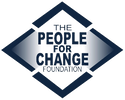INFORM
About the Project
This project critically engages with the legal and procedural information provided to asylum seekers and to draw out evidence of best practice. It will provide an assessment of the current state of play, an exchange of existing best practices and a roadmap for enhancing the legal and procedural information provided to asylum seekers.
To this end, the project will involve country studies and comparative analysis in six selected European Union (EU) Member States: Cyprus, Estonia, Italy, Malta, Sweden and the United Kingdom.
The project pays particular attention to the needs of specific groups of asylum seekers such as women, children, and disabled persons.
To this end, the project will involve country studies and comparative analysis in six selected European Union (EU) Member States: Cyprus, Estonia, Italy, Malta, Sweden and the United Kingdom.
The project pays particular attention to the needs of specific groups of asylum seekers such as women, children, and disabled persons.
Aims and Objectives
The project aims at improving the legal and procedural information provided to asylum seekers in order to improve the quality of asylum decisions and reduce asylum appeals in the EU. The project’s objectives are the following:
The project contributes to improve the quality of asylum decisions. In particular, the long-term outcomes of the project include:
- To assess the legal and procedural information that is provided to asylum seekers in the selected countries focusing on the content, the accessibility, the form and the source of the information.
- To develop a set of guidelines and standards that builds on the EU acquis and related refugee protection framework as well as a set of indicators to assess the quality of information.
- To identify and showcase of best practices from the selected EU Member States in the provision of legal and procedural information.
- To assess the implications of legal and procedural information on the quality of decision-making at both first instance asylum applications and, when unsuccessful, at appeal.
- To develop a community of practice and learning that will bring together relevant stakeholders from various countries to share information.
The project contributes to improve the quality of asylum decisions. In particular, the long-term outcomes of the project include:
- To improve the quality of information provided to asylum seekers.
- To strengthen the asylum information networks and enhance practice and information exchange among individuals and organisations working in the area of asylum.
- To improve access to research material in the area of asylum.
Background
The provision of legal and procedural information to asylum seekers is critical to the effective enjoyment of one’s right to seek international protection in a European country. The EU is the only regional body that has developed procedural guarantees and standards that should apply across its Member States.
However, the information provided to asylum seekers as well as the channels and ways through which they receive it varies across the different Member States. As highlighted by the European Commission communication “A European Agenda on Migration”, in 2014 the majority of the asylum requests resulted in a negative decision and for some nationalities almost all asylum requests were rejected, hampering the capacity of Member States to provide swift protection to those in need.
Given the multiple limitations imposed (in law and practice) on legal aid for asylum seekers, especially at the first instance of their asylum claims, there is an urgent need to provide adequate legal and procedural information regarding asylum.
However, the information provided to asylum seekers as well as the channels and ways through which they receive it varies across the different Member States. As highlighted by the European Commission communication “A European Agenda on Migration”, in 2014 the majority of the asylum requests resulted in a negative decision and for some nationalities almost all asylum requests were rejected, hampering the capacity of Member States to provide swift protection to those in need.
Given the multiple limitations imposed (in law and practice) on legal aid for asylum seekers, especially at the first instance of their asylum claims, there is an urgent need to provide adequate legal and procedural information regarding asylum.
The People for Change Foundation's role
Throughout the implementation, PfC will be responsible for the project activities in Malta, including the draft of the national report. Additionally, PfC will develop the methodology for the research that will be conducted in the selected countries. Finally, PfC will conduct the comparative analysis, identify best practices, and develop the guidelines on legal and procedural information to asylum seekers.
Project Website
The project website is available at: www.inform-asylum.eu


